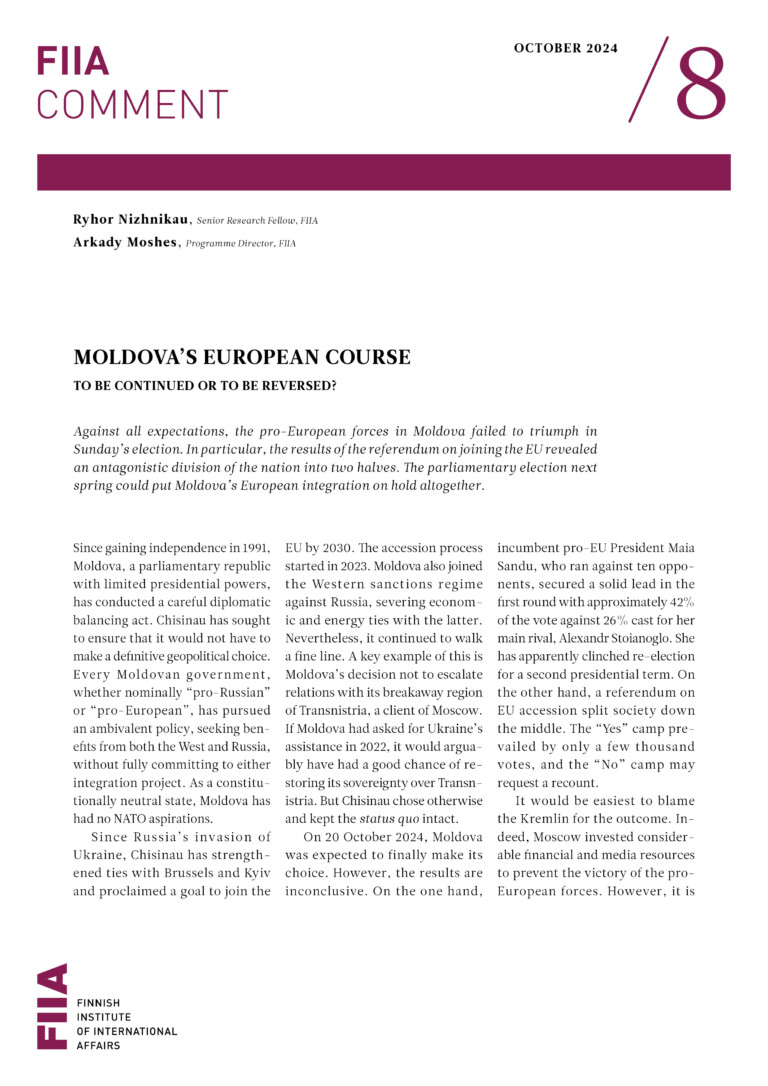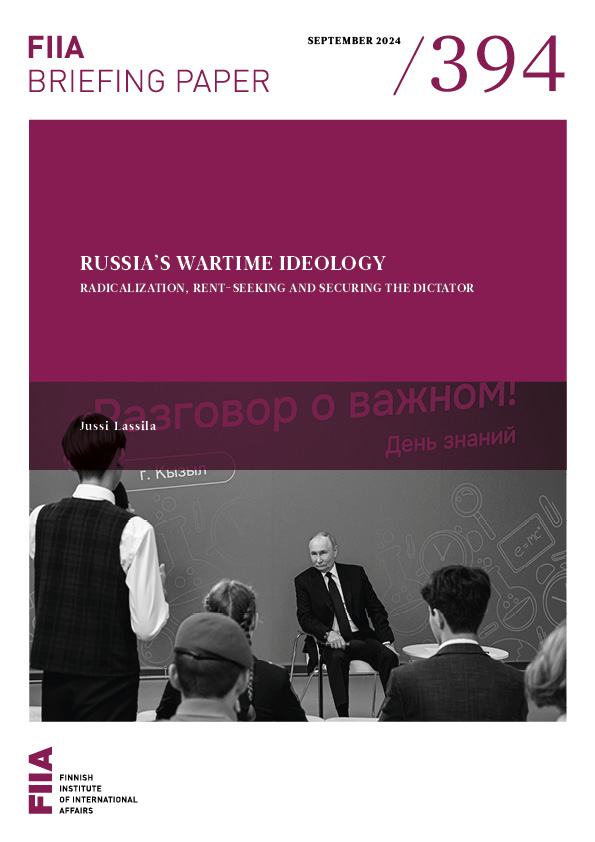
The upcoming presidential election in Belarus serves as a reminder of a profound crisis in the heart of Europe. Western decision-makers should abandon any hopes that the situation will resolve itself, and offer Belarus a viable and attractive European alternative.
On 26 January 2025, Aliaksandr Lukashenka will be formally anointed as president of Belarus for the seventh time. However, even if it is claimed that he has received yet another record number of votes – say, 90% or so – this will not prove that the political crisis in Belarus has been overcome. On the contrary, it will signal that the regime is weak and fully aware of it. The decision to bring the election forward by six months speaks volumes in this regard.
A sham election cannot resolve Lukashenka’s main political problem: the lack of internal legitimacy. His repeated pledges to leave office “at some point” and the constitutional amendments introduced through a referendum in 2022 have hardly restored public trust in Lukashenka to the levels seen before the mass protests of 2020. Although Russia’s invasion of Ukraine armed the regime’s propaganda machine with the argument that Belarus has avoided the war spilling over onto its soil purely thanks to Lukashenka, this has provided only temporary relief. Repression remains the main instrument keeping the regime afloat.
On the international stage, Lukashenka has effectively painted himself into a corner. The status of Putin’s co-aggressor may have seemed potentially rewarding in the spring of 2022, promising Minsk either participation in Russia’s military triumph or a mediator role. However, it has now become toxic. True, Moscow has agreed to sponsor the regime’s grip on power domestically, but it feels little need to bolster Lukashenka’s international agency anymore. By the end of 2024, Lukashenka could no longer pretend to be Russia’s main ally. North Korea and Iran, not to mention China, have become far more useful for the Kremlin. Revealingly, Belarus was not invited to take part in the Russia-West prisoner exchange in August 2024. Moscow has also disavowed Lukashenka’s claims of holding “the second key” to Russian nuclear weapons, which are allegedly – albeit unconfirmed by Western sources – deployed in Belarus.
Meanwhile, relations with the West continue to deteriorate. For months, Lukashenka has been issuing vague proposals to initiate a “dialogue” with the West. However, neither his gestures of “goodwill” – namely, the release of a small number of political prisoners – nor his threats related to the deployment of the same nuclear weapons and Russia’s new intermediate-range ballistic missiles have had any effect. In contrast to the pre-2022 situation, the West now treats Lukashenka’s Belarus not as an independent player but simply as an extension of Russia.
Unfortunately, the Belarusian opposition abroad has failed to seize the opportunity and also finds itself on the losing end. It remains divided – apparently due in part to disputes over access to Western funding – and has been unable to maintain influence both inside and outside Belarus. The political credibility unexpectedly bestowed upon it in 2020 has been squandered. In May 2024, fewer than 7,000 people cast e-votes in the election for the Coordination Council, the parliament-in-exile that was supposed to strengthen the opposition’s legitimacy. Its political capital in the West, which serves as the opposition’s main point of reference as a success story, is now in question. Most importantly, the opposition has been unable to alter the increasingly restrictive approach towards the Belarusian émigré community, even in countries that were initially very welcoming, such as Lithuania.
In turn, the West has done little to speak of, either. Its sanctions-based approach towards Lukashenka is the right one, but sanctions alone cannot compensate for the lack of a broader strategy towards the country. While the hope of bringing about change through support for the opposition abroad has not materialized, alternative approaches have never been publicly discussed. In this situation, Belarusian society feels abandoned and desperate. Stuck between a rock and a hard place – the regime and the war – and with no alternative offered by the West, people see the former as the lesser of two evils.
Paradoxically, Moscow cannot be entirely satisfied either. It has achieved an unprecedented level of control over Belarus, but at a huge cost. Lukashenka’s regime is a liability for the Kremlin. While Minsk can provide little material assistance to Moscow in pursuing its goals in the region, bailing out Lukashenka requires significant resources, which in times of war could be used elsewhere. Arguably, Moscow’s decision to stick with Lukashenka for now stems from the understanding that replacing him would be a risk. However, this calculus could change in the future, and Lukashenka is certainly cognizant of that.
The current situation, in which no one is winning, is unusual and unlikely to be sustainable in the long run. Everything hinges on the outcome of the war in Ukraine. As long as Ukraine holds, the status quo may persist, however detrimental this option may be for the Belarusian people and their national sovereignty. However, in the event of Ukraine’s defeat – whether on the battlefield or at the negotiating table – Belarus could face the probability of annexation by Russia and a consequent escalation of the current crisis. Crucially, guaranteeing Ukraine’s security within its new de facto borders will require securing the almost thousand-kilometre-long border between Belarus and Ukraine, an aspect that current European peace plans have not addressed.
Under these circumstances, the policy advice can be formulated very simply: if the West still wishes to deal with an independent Belarus rather than a Russian province after Lukashenka, it should promptly present the Belarusian people with the prospect of a European future and embark on a corresponding political course.









